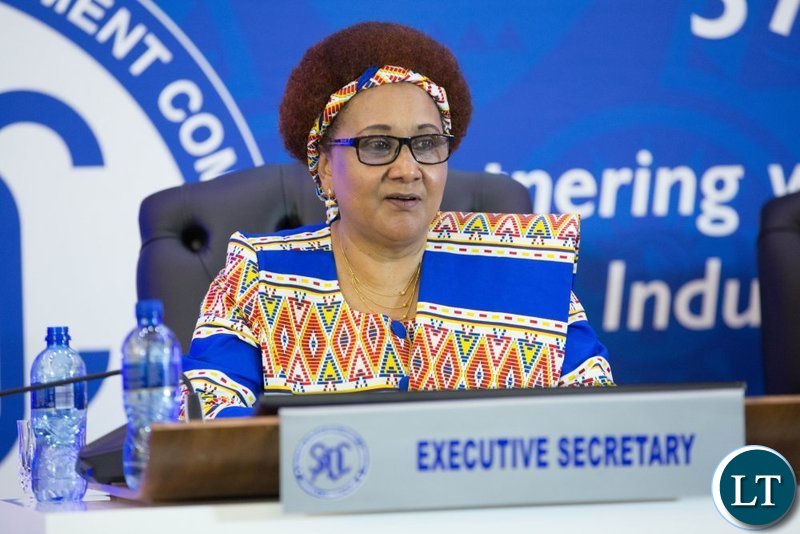The Southern African Development Community (SADC) Executive Secretary, H.E. Dr. Stergomena Lawrence Tax has underscored the important role of the private sector and small to medium enterprises (SMEs) in driving industrialisation in the region.
The statement comes on this day, the 20th November, as the SADC region joins the rest of the world to commemorate Africa Industrialization Day, a day that was proclaimed by the 25th Ordinary Session of the Assembly of Heads of State and Government of the Organization of African Unity (OAU) in July 1989, and the UN General Assembly, on December 22, 1989.
This year’s commemoration is under the theme “Inclusive and Sustainable Industrialisation in the era of the Africa Continental Free Trade Area (AfCFTA)”.
The theme underscores the importance of policy harmonization and alignment across national borders as a pre-requisite for cross-border investment and for the movement of goods, capital, and people. This year’s commemoration comes at a time when the region and the world at large are confronted with an unprecedented public health crisis of COVID-19 with far-reaching social and economic consequences.
The virus has exposed the deep inequalities that continue to exist in the SADC region and across the African continent. Dr. Tax said the development has clearly shown how far SADC is from realizing the developmental goals and responsibilities to the citizens.
On a positive note, he said the COVID-19 pandemic has demonstrated how the region is able to successfully work together to overcome its challenges, even during times of unprecedented crises. As a major driver of the planned transformation for the region, the industrial sector is one of the sectors significantly affected by the COVID-19 pandemic.
She implored the SADC Member States to understand and appreciate the extent of the damage that the pandemic has on their economies and respond with appropriate measures to ensure that the disruption does not seriously negate key developments in the industrialisation drive of the region.
Dr. Tax said SADC understands that industrialization, with strong linkages to domestic economies, will help the SADC Member States and African countries, to enhance productivity, diversify their economies, achieve high growth rates, and thus, reduce exposure to external shocks. This will substantially contribute to poverty eradication through employment and wealth creation.
SADC has over the years been at the forefront in driving the industrialisation agenda by putting in place policies and strategies to boost and catalyse industrialisation and transformation of the region. The transformation of SADC economies aims to create decent jobs, promote value-adding development approaches, and improve the welfare of citizens, and ultimately eradicate poverty in the region.
“Through the SADC Industrialisation Strategy and Roadmap (2015-2063), SADC values the private sector as the driver of industrialisation, and in particular, the need to strengthen the role of Small, Micro and Medium Enterprises (SMMEs) as they constitute a crucial economic and social factor in terms of employment, growth, incomes, and development,” Dr. Tax added.
She alluded to the important contribution of informal cross-border trade (ICBT), as a significant feature of regional trade in the region which must be supported as it generates substantial income and employment, food security, and household livelihoods.
According to the SADC Financial Inclusion Strategy, small and medium scale enterprises (SMEs) constitute between 75 percent and 95 percent of total firms and account for 48 percent of the region’s employment, with women and youth constituting a bigger proportion of cross-border trade in the SADC region.
“As we commemorate this year’s Africa Industrialisation Day, SADC commends both the public and private sectors, including SMMEs, for remaining vigilant and adapting their responses to the changing methods of doing business, especially in the midst of the COVID-19 pandemic. SADC implores all players to scale up responses to COVID-19, in order to minimize the effects of the pandemic on business operations and create more employment opportunities for the people,” Dr. Tax said.






